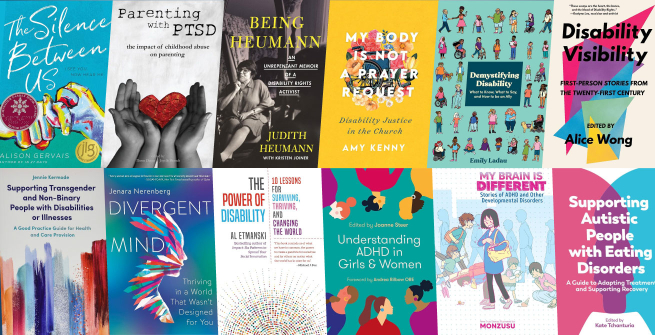There is a fairly widespread story regarding the first sign of civilization, Dr. Paul Brand, attributed to anthropologist Margaret Mead. It is said that during a lecture, a student asked her about the first sign of civilization; she said that for her, the first sign of civilization is a healed femur, the longest leg bone in the human body. A broken femur would have hindered an individual to certain death. However, a healed femur showed that someone must have cared for the injured person—hunted on their behalf, brought them food, and nursed by their side. Regardless of the accuracy of attribution, the story resonates deeply and universally. There is value in caring for people with disabilities among us, as anyone could fall victim to circumstances outside their control.
October is National Disability Employment Awareness Month (NDEAM). At the Los Angeles Public Library, everyone is welcome to read, learn, and increase their awareness about diversity in the workplace. Diversability embraces the uniqueness and differences in everyone. Diversability in the workplace promotes a welcoming space through empathy, inclusion, and equity. In the workplace, inclusion goes beyond ensuring that people with disabilities can enter the buildings. It also requires that people with disabilities can access, engage, and participate in these shared spaces.
Think about when you asked for help and did not receive the care or service you requested. When a situation like this occurs, we tend to think about bad customer service or a poorly trained employee. Still, we rarely dig deeper and consider that it may be due to a person with a disability lacking accommodations. There are unique services that only staff with diversity can provide, and showing respect will allow them to offer better services.
The importance of creating collective awareness about disabilities among employees, employers, and the general public is to foster a safe work environment where employees with these differences can reach their potential and share their talents. Empathy and acceptance are essential skills in the universal human pursuit to connect with others, even for those who may find it difficult or uncomfortable to do so.
Embracing differences starts from accepting the self and ripples through multiple layers of human connections to return magnified positive outcomes for everyone. Some neurodivergence conditions are perfect for creativity or problem-solving and can provide better service to clients with the same limitations or show a deeper understanding with users. People with sensory disabilities may be more aware of the sensory challenges that bother our patrons. Mobility adaptations are not only useful for those with disabilities but also for the non-disabled.
For example, mobility accommodations can be beneficial to ease challenging situations, such as when book carts or shipments are used that require a ramp, or even for daily situations, such as being safer to run through. Gentler sensory environments might be able to eliminate distractions and irritations when any person is having a bad day. Accommodations are beneficial for everyone because their purpose is to ease situational difficulties.
Many books contribute to a better understanding and help us raise awareness of diversity in the workplace and daily life. Below are some suggested readings you can check out and borrow for free, online and in-person, using your Los Angeles Public Library card. The book list and this blog were created in collaboration with Journey and Jasmine Jones. For related blog reading, check out the article written by Journey about Autism.












